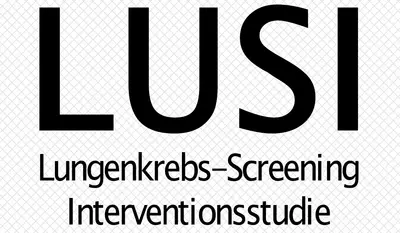Cancer Epidemiology
- Epidemiology, Public Health, Prevention and Survivorship

Prof. Dr. Rudolf Kaaks
Head
Our division studies the causes of cancer in population groups with the aim of identifying and, if possible, avoiding risk factors so as to prevent cancer. Our key focus is on the quantification of risks associated with lifestyle, nutrition and metabolism, and immune factors. In addition, we address the question of how lifestyle may interact with genetic susceptibility factors in cancer development, as well as in cancer survival.
Image: © freepik.com,
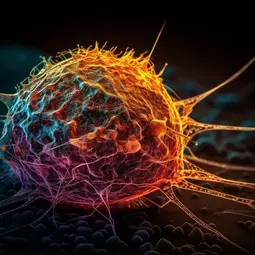
Image: © freepik.com,
Our Research
On the basis of established, genetic and non-genetic risk factors, we build quantitative risk models for the identification of individuals who have an increased risk of developing cancer compared to others, and who may gain increased benefit from targeted prevention measures such as regular cancer screening.
A further focus is exploring new routes for prevention and early diagnosis of cancer, as well as quality control of introduced measures. Due to their population-related approach, statistical methods and their further development are of particularly high relevance in epidemiology.
A major part of our research takes place within the setting of large-scale prospective cohort studies, such as the European Prospective Investigation into Cancer and Nutrition (EPIC) and the Scandinavian Consortium of Maternity Cohorts. Besides these prospective studies in the general population, our division conducts studies within large cohorts of cancer patients.
FUTURE OUTLOOK
Studies within our various prospective cohorts are increasingly making use of modern, high-throughput “omics” technologies (metabolomics, genomics, epigenomics, next-generation sequencing) for the identification of risk factors and predictors for cancer and markers for early detection.
For future studies, our division has a central role in the development and set-up of the “NAKO” – a new, large-scale prospective cohort study in Germany.
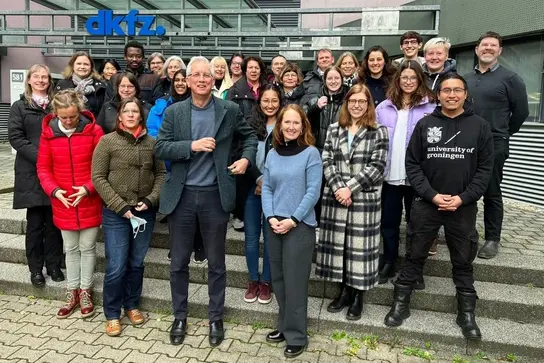
Projects
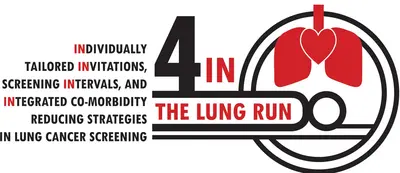

In the PROBASE study (Risk-adapted prostate cancer early detection study based on a ‘baseline’ PSA value in young men - a prospective multicenter randomised trial), a modern concept for PSA screening is being investigated. In this risk-adapted strategy, PSA tests are carried out depending on the individual risk of the man, which is determined using a baseline PSA value at the age of 45 or 50.
Ovarian Cancer: Risk, Earlier Detection and Survival
Ovarian cancer has relatively few established risk factors, and due to a lack of reliable early detection methods, most women with ovarian cancer are diagnosed at an advanced stage when treatment is less effective. Worldwide, it is the 6th leading cause of cancer-related mortality in females, and in Europe it is the most lethal gynecological malignancy. Ovarian cancer is a very heterogeneous disease, with different risk factors, treatment, and prognosis by disease subtype. A major focus of our work has been to improve characterization of risk, early detection, and survival by disease subtype and in the context of contemporary exposures and treatments. Our studies are conducted in leading prospective cohorts (e.g., European Prospective Investigation into Cancer and Nutrition ), international consortia (e.g., Ovarian Cancer Cohort Consortium), and registry-based studies.
Publications
Stawiski K, Fortner RT, Pestarino L, Umu SU, Kaaks R, Rounge TB, Elias KM, Fendler W, Langseth H. Validation of miRNA signatures for ovarian cancer earlier detection in the pre-diagnosis setting using machine learning approaches. Front Oncol. 2024 Jun 25;14:1389066. doi: 10.3389/fonc.2024.1389066. PMID: 38983926
Fortner RT, Trewin-Nybråten CB, Paulsen T, Langseth H. Characterization of ovarian cancer survival by histotype and stage: A nationwide study in Norway. Int J Cancer. 2023 Sep 1;153(5):969-978. doi: 10.1002/ijc.34576. Epub 2023 May 25. PMID: 37226635
Skarga E, Surcel HM, Kaaks R, Waterboer T, Fortner RT. Sexually Transmitted Infections and Risk of Epithelial Ovarian Cancer: Results From the Finnish Maternity Cohort. J Infect Dis. 2023 Nov 28;228(11):1621-1629. doi: 10.1093/infdis/jiad171. PMID: 37196097
Mukama T, Fortner RT, Katzke V, Hynes LC, Petrera A, Hauck SM, Johnson T, Schulze M, Schiborn C, Rostgaard-Hansen AL, Tjønneland A, Overvad K, Pérez MJS, Crous-Bou M, Chirlaque MD, Amiano P, Ardanaz E, Watts EL, Travis RC, Sacerdote C, Grioni S, Masala G, Signoriello S, Tumino R, Gram IT, Sandanger TM, Sartor H, Lundin E, Idahl A, Heath AK, Dossus L, Weiderpass E, Kaaks R. Prospective evaluation of 92 serum protein biomarkers for early detection of ovarian cancer. Br J Cancer. 2022 May;126(9):1301-1309. doi: 10.1038/s41416-021-01697-z. Epub 2022 Jan 14. PMID: 35031764
Earlier Detection Consortia
miRPOC - miRNA as biomarkers in early detection and personalized treatment in ovarian cancer
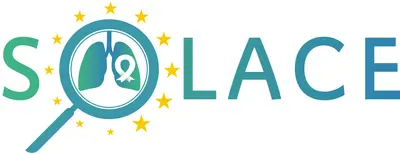
SOLACE aims to develop, test and disseminate tools to overcome identified bottlenecks and target health inequalities in different European countries. It will provide a toolbox for individualised approaches to lung cancer screening at national or regional level.

The German National Cohort (“NAKO Gesundheitsstudie”) is an interdisciplinary, population-based cohort study that will follow the long-term medical histories of 200,000 participants over 25-30 years. As Germany’s largest health study, the overarching aim of the National Cohort is to inform more effective disease prevention strategies, with a focus on seven major disease groups: cancer, diabetes, and cardiovascular, neurologic and psychiatric, infectious, respiratory and musculoskeletal diseases. It will provide a major, central resource for population-based epidemiology in Germany, and will help to identify new and tailored strategies for early detection, prediction, and primary prevention of major diseases.
The main objectives of the study are:
- to identify etiologic pathways linking lifestyle and environmental risk factors to chronic diseases and functional impairments;
- to study the causes of regional and socio-economic disparities in health status and disease risk in Germany; and
- to develop risk prediction models for the identification of individuals at increased risk of major chronic diseases; and (iv) to identify and validate markers for early detection of disease and pre-disease phenotypes.
The study participants are recruited through a network of 18 local recruitment centres, in 8 regional clusters throughout Germany, which cover both urban, strongly industrialized and rural regions (Figure V.1). Each centre recruits a minimum of 10,000 cohort participants, men and women aged 20-69 who are randomly selected from municipal population registers. At baseline, the participants are invited to visit their local study centre, where they have a face-to-face interview, fill out computer-aided questionnaires, provide biological samples, and take part in an extensive series of medical examinations.
The Division of Cancer Epidemiology is responsible for one of the 18 recruitment centres of the German National Cohort, which is located in Mannheim (PI: Rudolf Kaaks, together with Co-PIs from the University of Heidelberg) In addition, the MRI centre in Mannheim conducts 6,000 MRIs for study participants from the study centres Mannheim, Saarbrücken and Freiburg under the joint responsibility of the DKFZ and the University Hospital Heidelberg.
As part of the Competence Network Secondary and Registry Data, the division also has responsibility for the administrative and scientific organization of record linkages to epidemiological and clinical cancer registries throughout Germany.
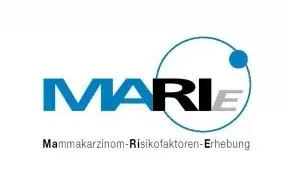
The MARIE study is a population-based case-control study on breast cancer with more than 11,000 women. In the years 2001-2005, histologically confirmed patients with breast cancer or carcinoma in situ (age range 50-74 years) and, as controls, women without breast cancer were included. The study took place in the two regions of Hamburg and Rhine-Neckar-Karlsruhe. There were three follow-up studies.
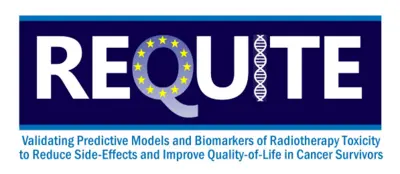
Approximately half of all cancer patients receive radiotherapy as part of their cancer treatment. Patients react differently to radiotherapy. Some are particularly sensitive, making them more at risk than others of developing side effects that can occur years after radiotherapy.
The aim of the international REQUITE project (www.requite.eu) with more than 4000 breast, prostate and lung cancer patients and the ISE study with more than 400 breast cancer patients is to develop prediction models and biological tests to identify those patients who are particularly sensitive before the start of treatment. This should reduce side effects in patients, improve their quality of life and potentially increase the number of successfully treated cancer patients.
The ISE study also participates in the international Breast Cancer Association Consortium (BCAC). Pseudonymised data (such as genetic data, lifestyle factors and tumour-related data) will be used to address disease-related research questions that deal with the investigation of genetic risk factors for breast cancer as well as survival, second tumours and pharmacogenomics.
Team
-

Prof. Dr. Rudolf Kaaks
Head
-
Dr. Rashmita Bajracharya
Scientist
-
Alice Bassetto
-
Celine Beck
-
Dr. Sabine Behrens
Scientist
-
Muhabbet Celik
Laboratory staff
-

Dr. Francisco Omar Cortes Ibanez
Scientist
-

Dr. Srimanti Dutta
Scientist
-
Bettina Ehret
Laboratory staff
-
Dr. Karin Halina Greiser
Scientist
-
Ulla Gromer
Technical staff
-
Philipp Heumann
Doctoral student
-
David Hofer
-
Dr. Anika Hüsing
-
Dr. Theron Scot Johnson
Lab manager
-
Anna Kaiser
Scientist
-

Florian Paul Karpa
Technical staff
-

Dr. Verena Katzke
Unit Head
-
Maureen Kipkoech
-
Manuela Kleinlagel
-
Yvonne Küster
Technical staff
-
Amrita Das Mavila
Doctoral student
-
Dr. Erna Motsch
-
Sarah Oeder
Technical staff
-
Kerstin Pieper
Technical staff
-

Petra Rössler
Secretary
-
Jara Sabin
-
Jutta Schmitt
Technical staff
-
Sina-Isabel Warz
-

Heike Weis
Secretary
-
Dorothee Zoller
Technical staff
Selected Publications
Cortés-Ibáñez, F. O. (First author) ; Johnson, T. ; Mascalchi, M. ; Katzke, V. ; Delorme, S. ; Kaaks, R. (Last author)
Decker, N. S. (First author) ; Johnson, T. ; Vey, J. A. ; Le Cornet, C. ; Behrens, S. ; Obi, N. ; Kaaks, R. ; Chang-Claude, J. ; Turzanski-Fortner, R. (Last author)
Srour, B. (First author) ; Hynes, L. C. ; Johnson, T. ; Kühn, T. ; Katzke, V. A. ; Kaaks, R. (Last author)
Get in touch with us

Petra Rössler
SekretariatPostal address:

Heike Weis
SekretariatPostal address:
